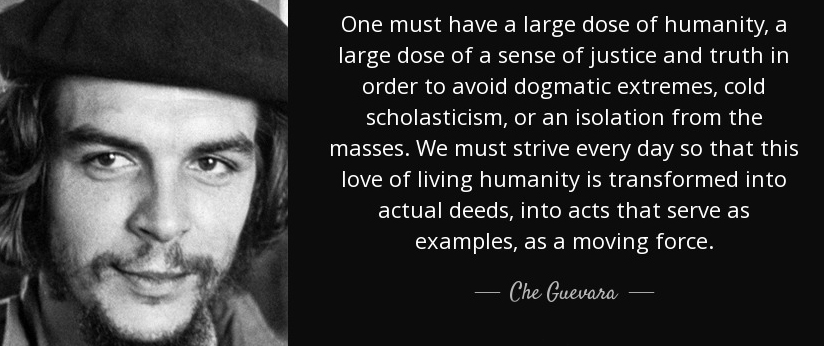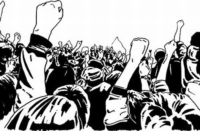Empathy is most often discussed in examples of its absence. The idea of a human as unempathetic is the stuff of nightmares, horror films, and late-night true-crime documentaries: the psychopath motivated to kill by an innate evil impulse.
Like most dramatic pop psychology, this is an oversimplification. Psychopaths are as man-made as most other “evils” that stalk this world. As it turns out, so is empathy.
Empathy, simply put, is the ability to understand and share the feelings of another. It is generally viewed as an instinctive response in most healthy, neurotypical people—something they don’t need to think about in order to act on. This trait appears among all cultures and languages and even among different species.
But empathy is a bit more complex than all this would suggest. It is also behavioural: that is, we learn to empathise, or, as the case may be, relearn it and unlearn it.
Neurotypicals react to most interactions with a blend of the so-called innate, “warm,” emotional empathy and learned, “cold,” cognitive empathy. Warm empathy is the part of us that immediately wants to comfort or protect others when we see them in distress and that experiences joy at another person’s happiness. Cold empathy is best displayed by medical workers through their “bedside manner”: it is a coping mechanism that is learned and applied in order to bring emotional empathy under conscious control.
Using warm and cold empathy together helps people to arrive at a position where they can react with emotion but also with a logical understanding of others. Empathy isn’t just about our feelings, or a knee-jerk response dictated by them: it is the training that helps us understand the feelings of others and teaches us how to see the world from another viewpoint. It is also what allows us to rationalise for long-term benefit against our immediate empathic response. The “punching a Nazi” argument is one such: punching a person now to prevent them from engaging in more substantial violence later.
The form taken by this blending of warm and cold empathy is shaped by the society and the social norms within which a person lives, as well as the codes of behaviour of their cultural, social and professional groupings.
This doesn’t always work out in a beneficial way. Daniel Goleman, author of the book Emotional Intelligence (1996), notes that torturers would need to have good cold empathy to work out how best to hurt someone. They would be people who have in effect begun using cold empathy to rewire their warm empathic responses to stimuli in an anti-social manner. Empathy without the empathy: a self-constructed sociopath.
Although Goleman is discussing a worst case—since we do use our “common sense” to handle our empathic responses—there has to be a deeper examining of the impact of the social norms of capitalism on how we relate to each other as people. How is this “common sense” manufactured?
Living within an individualistic society, such as that of western Europe or the United States, shapes how a person understands and acts upon their empathic response differently from those living in more collectivist societies. Sara Konrath of the University of Michigan suggests that the capacity for a person in these individualistic societies to empathise effectively is muted or removed. However, more recent studies show that this is a misunderstanding: empathy is merely reshaped for capitalism’s benefit.
It is a bizarre manufactured empathic response that has some Irish people genuinely concerned for the health and well-being of a monarch in another country but wouldn’t know their neighbour to say hello to.
In a capitalist society that promotes individualisation—leaving aside the obvious detrimental role that systemic racism, sexism, classism etc. has to play—people are taught to relate on a one-to-one level, meaning that they only learn to empathise with other individuals on an individual basis.
Narcissistic traits, which have been shown to be increasing among young people in capitalist societies since the late 1970s, have exacerbated the individualistic need to overplay or emphasise their own importance and place a priority on showcasing their own value and talent. This leads people in capitalist countries to the conclusion that participation within groups where a visible individual impact is less likely to be realised is ultimately valueless.
“Social loafing” is the phenomenon of a person exerting less effort to achieve a goal when they work in a group compared with when working alone. There are some small variants, with women less likely to socially loaf; but generally people of an individualistic mentality were found to do so almost automatically, no matter the value placed on the work. This is in direct opposition to those of a collective outlook, who fully participated in all group situations.
Individualisation effectively destroys any motivation for challenging systemic problems or solving them in a wholesale way. The cultural expectation makes it more attractive for them to help the single concrete “victim,” for example one homeless person, preferably in an interaction that can be filmed, than to attempt to dismantle the capitalist system, which commodifies homes and leads to homelessness in the first place. This is the same world view that promotes the “tragedy of the commons” thinking, which poses the notion that a shared responsibility is no-one’s.
This also means that, in the capitalist world, a brain with a predisposition towards anti-social behaviour, through circumstance (sociopathy) or genetics (psychopathy), is, in the best case, likely to become a socially acceptable form of Goleman’s torturer. In fact the use of cold empathy is often lauded as the means by which Wall Street businessmen and CEOs are able to so ruthlessly exploit workers for their own and often others’ profit. This thinking shows how twisted the social values of capitalism are, and how alienated people have become in such a system.
Empathy is important because it is directly linked to pro-social behaviour and with having a sense of social responsibility that enhances the lives of both the individual and the broader collective, such as volunteering and participation in local projects and community events, as well as a higher likelihood of avoiding engaging in anti-social behaviour of all types, from rowdy public drunkenness and littering to causing harm to others.
The bystander effect and diffusion of responsibility are other social-psychological phenomena that can be combated by pro-social action.
As communists and Marxists we should not be making base appeals to “man’s better nature”: we know this better nature is a construct and contingent on the society that constructs it. But using a Marxist analysis of the world, and by working towards a communist society, we can and should be reshaping what expectations we place upon ourselves and others.
It is not just the means of production that we must retake but the very way we view and relate to the world. It is not enough for us to state that the world is unfair, unjust, or cruel: we must strive to make it fair, demand that it be just, and offer compassion to the oppressed.
We must challenge the capitalist world view, and we must do so in all areas of our lives, by taking action not just for the betterment of the one but for the betterment of all.






